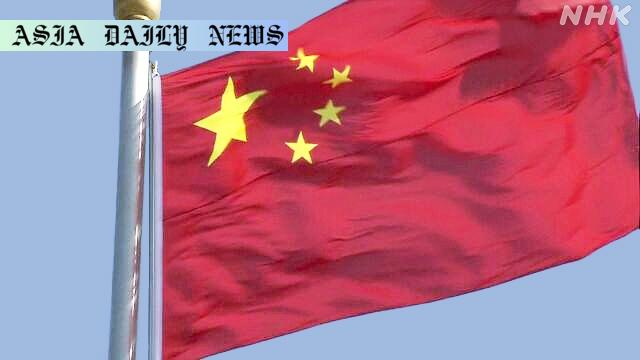Panama Canal: China delays Hong Kong company’s port sale, citing a comprehensive review amidst US economic pressures.
China initiates a review of the proposed sale of Panama Canal operations by a Hong Kong firm.
The review impacts plans for a deal that involves a US investment group.
Chinese officials criticize US economic interference and stress regulatory compliance.

China’s Opposition to the Panama Canal Deal
China has recently announced a formal review of a transaction involving the sale of port operations near the vital Panama Canal. This sale, initiated by the Hong Kong-based CK Hutchison Holdings, is a critical development as the company reached a preliminary agreement to transfer ownership to a consortium that includes a US investment fund. However, the Chinese authorities have made it clear that such a sale would not be finalized without thorough scrutiny. The State Administration for Market Regulation (SAMR) confirmed the news, underscoring the importance of protecting China’s strategic financial and geopolitical interests in international trade operations.
Amid these developments, the US has heightened its concerns about China’s increasing influence over global critical infrastructure. US President Donald Trump has gone as far as to reference the Panamanian government’s management of the canal and suggested a potential shift in operational dynamics. China, however, remains resolute in opposing what it perceives as undue economic pressure aimed at undermining its legitimate commercial interests.
The Strategic Significance of the Panama Canal
The Panama Canal serves as one of the world’s most significant waterways, facilitating international trade by connecting the Atlantic and Pacific Oceans. Critical to global commercial networks, any activity surrounding its management draws immediate geopolitical focus. Analysts argue that the proposed sale represents more than a mere commercial transaction—it delves into the broader framework of global power dynamics. For China, safeguarding its interests in this region aligns with its Belt and Road initiative, while for the US, it signifies the protection of its influence and security concerns in the Western Hemisphere.
This tug-of-war between Beijing and Washington underscores the growing importance of economic sovereignty in today’s interconnected world. Additionally, regulatory bodies within China have emphasized that all business transitions impacting internationally significant infrastructure remain under the purview of stringent examination. As such, the delay in finalizing this transaction reflects larger battlegrounds of control and oversight.
China’s Response to US Economic Pressure
China’s response to US-led criticism has been swift and assertive. A foreign ministry spokesperson recently criticized what they dubbed as “economic pressure” from Washington, pointing out that such actions undermine the legitimate interests of international trading partners. According to Beijing, this incident points to a history of interference by the US administration in foreign enterprises and governments with vested Chinese partnerships. Further, the cancellation or delay of deals due to political maneuvering leaves businesses caught amidst these struggles.
This latest episode reignites debates regarding international trade policies and how they intersect with national security priorities. The Chinese government has sent a clear signal that any firm navigating within its economic circle must comply with its laws and oversight systems before venturing into globally sensitive deals. Such regulations are positioned as measures to ensure national security and economic stability, although they have sparked concerns over increased protectionism.
The Broader Implications of This Conflict
The unfolding scenario demonstrates the fragility of globalization when competing superpowers clash over critical infrastructure. While economic collaboration has long been viewed as a formula for mutual benefit, the Panama Canal dispute suggests that such partnerships are increasingly fraught with strategic pitfalls. Experts predict that this trend is likely to intensify as both the US and China adopt more inward-looking policies aimed at safeguarding their technological and logistical advantages.
Moreover, this development emphasizes the need for independent arbitration bodies that transcend geopolitical allegiances for dispute resolution. As nations prioritize their economic and security concerns, the role of international regulatory frameworks becomes ever more critical. Without such mechanisms, the world risks spiraling into increased isolationism and trade disruptions.



Commentary
Navigating the Crossroads of Geopolitical Tensions
The conflict surrounding the Panama Canal once again highlights the complexities of modern geopolitics where commerce and national interests often intertwine. The decision by China to review the sale of port operations near this strategic resource demonstrates its meticulous approach to protecting its global influence, particularly amidst heightened US scrutiny. The canal, historically significant and commercially vital, has now transformed into a flashpoint for international debate.
From a global citizen’s perspective, the question arises: are such disputes affecting the collaborative spirit of international trade? On one side, it underscores a nation’s right to safeguard its strategic interests, but on the other, too much political interference risks diluting the neutral essence of globalization. However, one cannot ignore that control over critical chokepoints like the Panama Canal wields enormous economic and geopolitical benefits. Having such a key trade route potentially under partial Chinese influence makes the US understandably concerned, placing the canal at the center of superpower rivalry.
Balancing Sovereignty with Global Trade
One has to wonder whether this incident is simply the tip of the iceberg. Both China and the US have come to represent dichotomous views of the global order—one striving for an interconnected world and the other leaning towards economic nationalism. In this struggle, smaller countries like Panama or businesses such as CK Hutchison Holdings are caught in the crossfire. It raises crucial questions for firms involved in global trade: how do they navigate these murky waters of aligned and conflicting interests?
Ultimately, the Panama Canal’s controversy is a reminder of how fragile the balance of power is in a world where economics, security, and diplomacy meet at a crossroads. As nations continue to link infrastructure to strategic advantage, we as global observers must hope for multilateral cooperation that prioritizes long-term stability over short-term tactical gains. An open-minded dialogue may yet turn this standoff into an opportunity for collaboration.